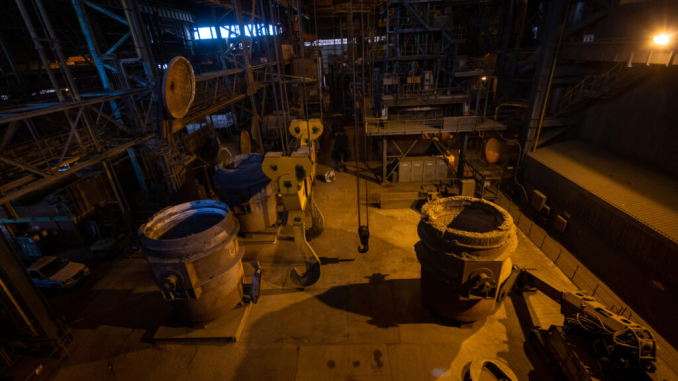
As long steel winds down. From Moneyweb.

ArcelorMittal (Amsa) says it has no choice but to start winding down its long steel plants after failing to extract concessions from the government over the preferential treatment extended to competing scrap mills. These mills can purchase scrap steel at a 30% discount to international prices.
Read: Lesufi hails Brics-backed steel firm as Amsa’s future hangs in the balance
The closure of Amsa’s steel mills continues the country’s prolonged deindustrialisation, which began in the 1980s.
Amsa announced its plan to close its long steel business earlier this month but postponed the final decision pending discussions with the government.
“Regrettably, the parties have not been able to find timely solutions required to defer the wind down of longs business,” says Amsa in a Sens announcement.
Read the Sens here.
A key sticking point is the benefit enjoyed by competing scrap steel mills. These mills enjoy a substantial pricing advantage through the Preferential Pricing System (PPS), which allows them to secure their feedstock at a 30% discount on market prices.
Another contentious issue was the government’s apparent refusal to lift the 20% tax on scrap exports, introduced in 2020. This tax, on top of the PPS, has worked to the advantage of so-called mini-mills that use scrap as their primary feedstock but has been disastrous for Amsa.
Steel industry operators have pointed out the government’s conflicted role in settling tariff policy, given the Industrial Development Corporation’s R14 billion exposure to mini-mills using scrap metal as feedstock. Some of these are in business rescue and stand to benefit from Amsa’s winding down of its blast furnaces.
Read: Steel mogul Mittal, SA ministers meet on mill closures
The Amsa Sens announcement says the decision to close its long steels business was also influenced by the lack of progress in lowering electricity and transport costs.
Transnet has declined to negotiate improved rail tariffs, while Eskom did not support Amsa’s request for a negotiated pricing agreement to lower its electricity costs.
Furthermore, government did not introduce the requested increase in import duties, while the temporary “safeguard” duty on hot rolled coil has been allowed to lapse. This has intensified imported competition, particularly from China.
“The structural elements leading to the wind-down of the long steel business remain unaddressed despite extensive discussions. Since early 2024, when negotiations began, these conditions have not merely remained static but have worsened. The situation has deteriorated significantly since our discussions began,” says Amsa.
Electricity costs will increase by 12.74% from 1 April 2025, further undermining Amsa’s competitive position. This is in addition to tariff increases announced by Transnet.
Read: Tycoon Mittal, Ramaphosa meet over steel woes
Amsa says it has no option but to commence the wind down of its blast furnaces from the first week in March, with the last steel produced in late March or early April. The final wind-down into care and maintenance will commence in the second quarter of 2025.
The PPS was introduced in 2013 by then-Minister of Economic Development Ebrahim Patel to ensure local scrap mills had a steady and affordable supply of scrap. It requires scrap dealers to offer their scrap to local buyers at a 30% discount to international prices before exporting.
A report into the steel sector by Econometrix shows SA’s steel production has halved to 4.7 million tonnes since 2006, while imports have surged 50%. SA now accounts for just 0.3% of global steel production.
